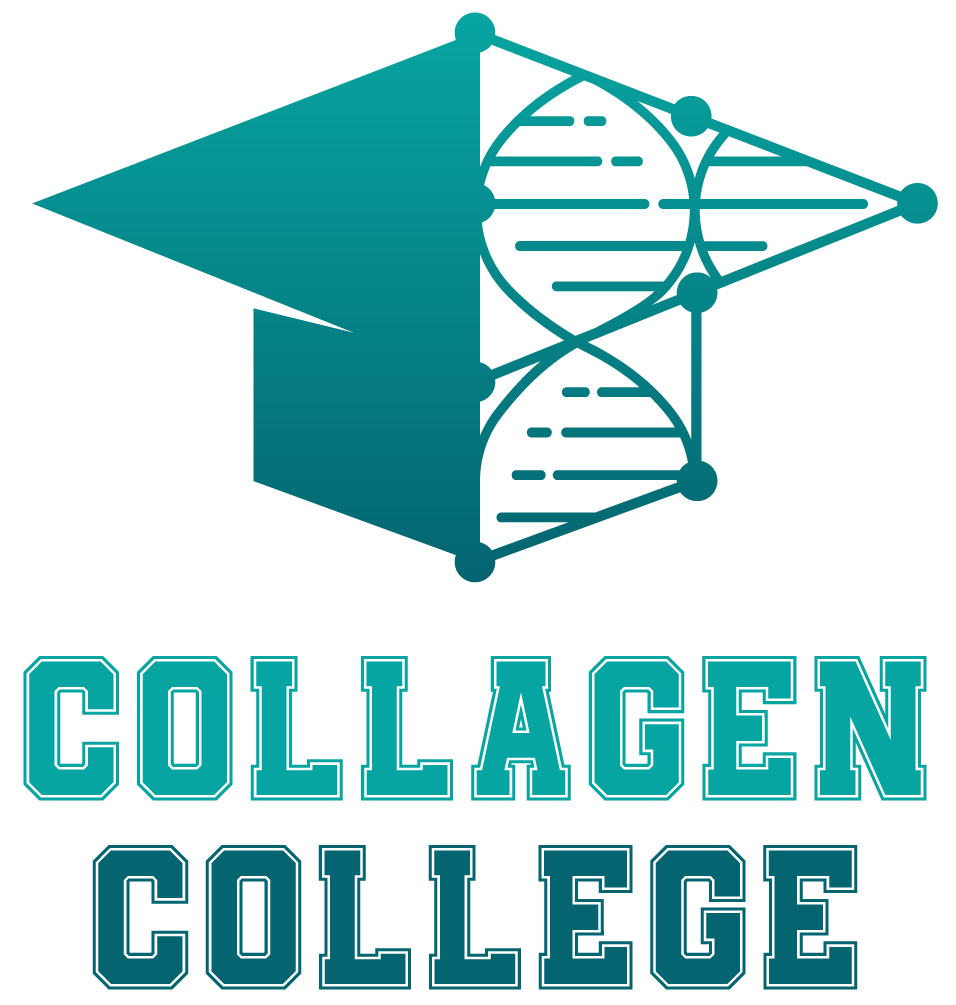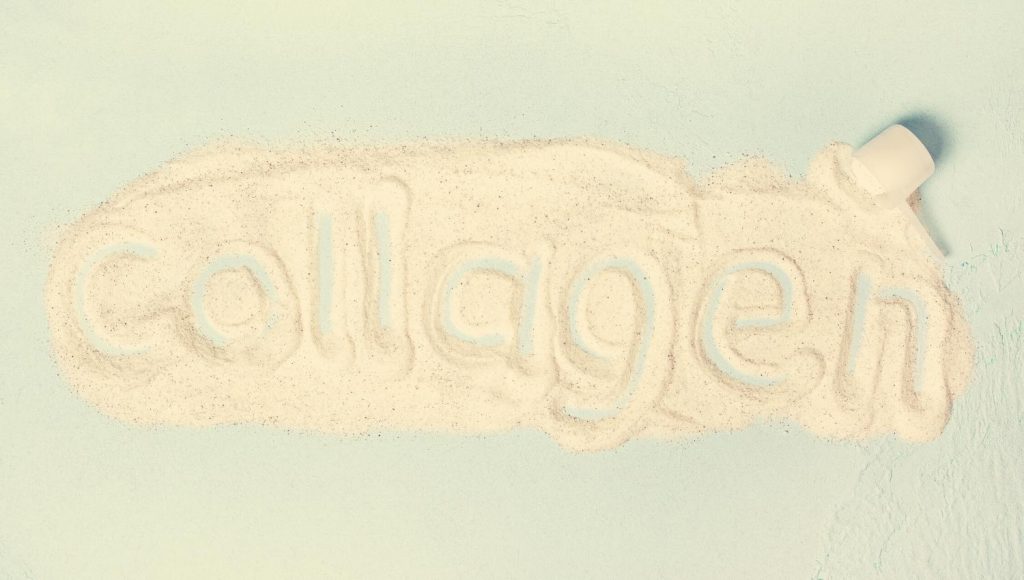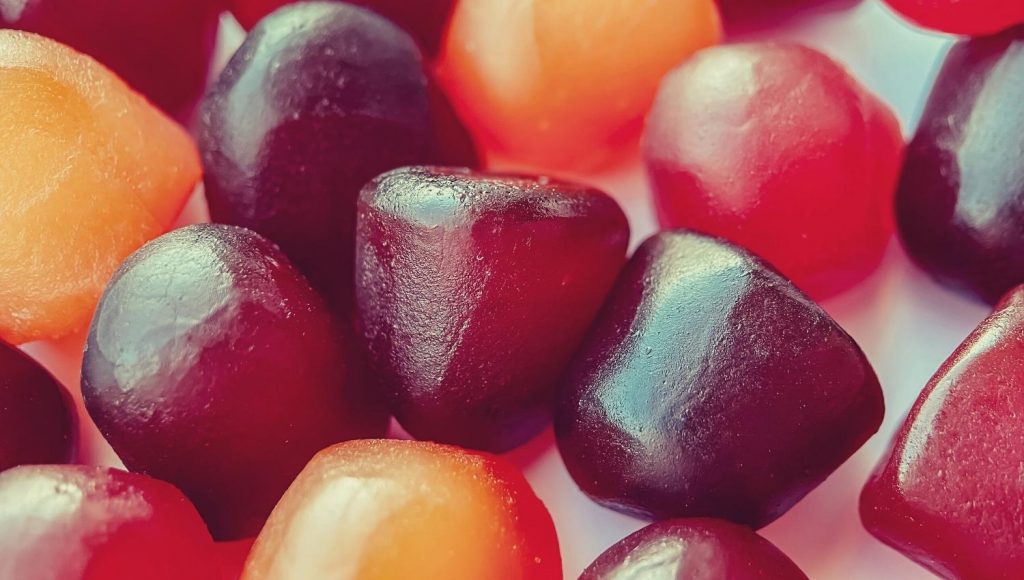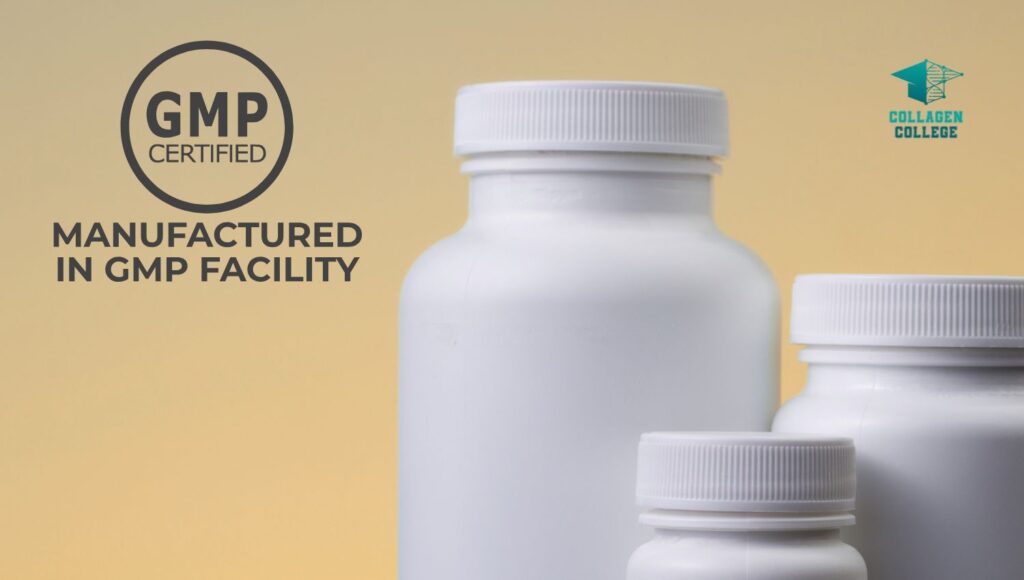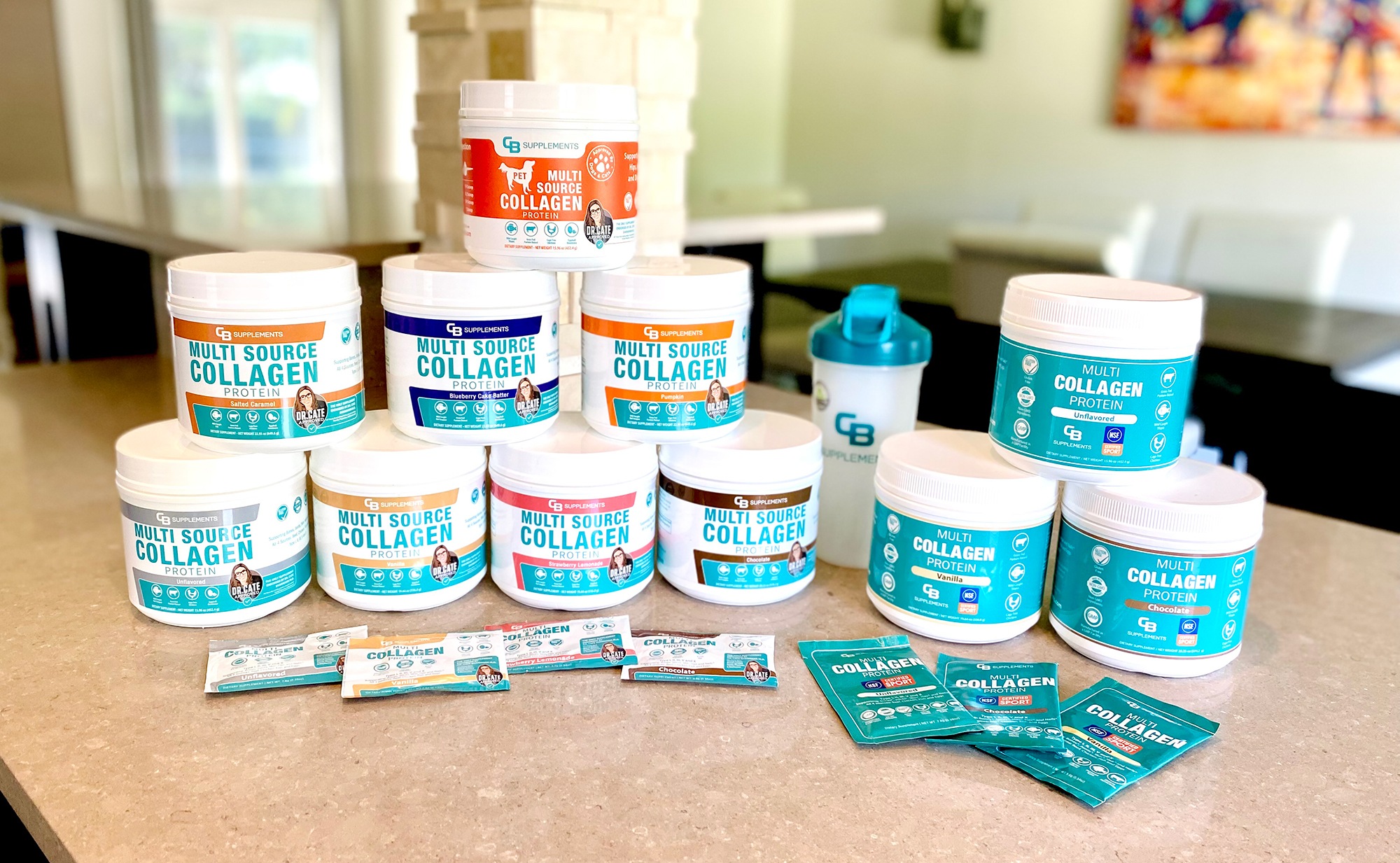Collagen is really important.
It’s the most abundant protein in our bodies and the main component of our connective tissue, many of our organs (including the heart, lungs, and digestive system), blood vessels, bones, and joints.
Collagen is produced naturally by our body, but around the age of 25-30 (for reasons we don’t quite understand yet), we all start to see a decline in collagen production. This starts that wonderful phase of life we call the “aging process” (getting old y’all!)
What shall we do?
EAT MORE COLLAGEN.
Best Way to Ingest Collagen: it must be EATEN
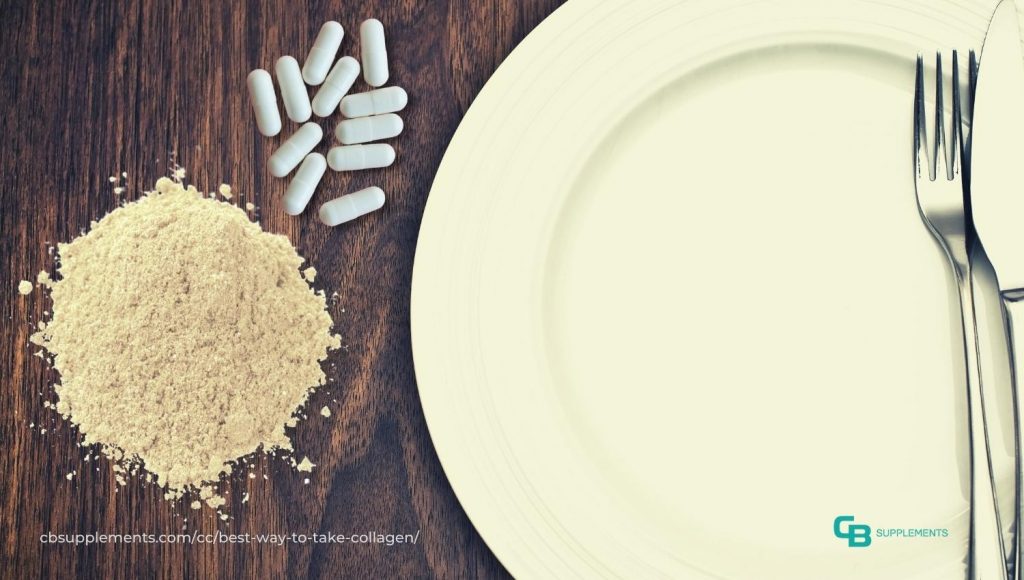
Collagen must be ingested for our bodies to absorb and use to repair tendons, ligaments, joints, skin, hair, bones, digestive health (and more!) throughout your body. That is collagen’s superpower: connective tissue building.
No, you can’t rub in collagen via a cream for your body to use [insert eye-roll here] — more on that in the gimmicks section below. Also, injections are purely cosmetic — giving the appearance of plumper and smoother skin.
If you’re ready to give your body collagen that it can actually use, you only have 2 options here.
Best Way to Consume Collagen: you have 2 options!
You have only two options to consume collagen:
- Eat lots of foods that contain collagen (e.g. Bone Broth, Organ Meats, etc.)
- Supplement with collagen hydrolyzed peptides (e.g. powder, capsules, etc.)
We always recommend getting your nutrition from food first, then supplement. However, your options are limited here. Are you seeing why collagen supplements are all the rage? 🙂
Let’s explore these two ways to take collagen, starting with foods that our ancestors ate regularly and today we rarely eat, unfortunately.
Option #1: Whole Foods
Hate supplements? That’s OK. You can still take collagen without scooping collagen powder or swallowing capsules.
But, this option will require you to drink and eat foods that are abnormal to the Standard American Diet (SAD), or otherwise coined as the “Western Diet”. Let’s face it, drinking bone broth regularly or cooking up a cow’s heart is not necessarily at the top of our list — especially on Taco Tuesday.
If you want to take collagen naturally, start by eating these foods that are high in collagen. If you’re like many of us that come up short with our natural collagen intake via foods, supplementation is the next logical (and easy) step and can drastically improve many everyday functions and help restore overall health. Collagen can be taken at any age over 2, and since they’re so prevalent today, you now see why the collagen market is booming!
Let’s dive into collagen supplements.
Option #2: Collagen Hydrolyzed Peptides Supplements
Let’s frame this entire conversation by defining exactly what a collagen supplement is before we get into the various forms of collagen supplements.
The simple definition: A collagen supplement is a product (in various forms we’ll explore below) manufactured to provide the body with additional collagen protein. Here’s how collagen peptides are made.
Let’s first get into the various forms of collagen supplements that you may have seen out there.
6 Best Forms of Collagen Supplements

Just like many other supplements, collagen comes in a variety of vehicles to transport into your body. You can dissolve, eat, and drink your way to more collagen.
Here are the 6 most common forms of collagen supplements on the market today:
note: we’ll continue to add to this list as new products are introduced
Let’s touch on each form, starting with the very popular (and what CB Supplements offers), collagen powder.
1. Collagen Powder
Collagen powder is the king of collagen supplements.
Most collagen supplement brands will offer a powder because of its versatility with liquids and foods. You can also cook with it, check out our 50+ collagen recipes. If collagen powder went to high school, it’d be voted “Life of the Party” or “Most Likely to be Famous”.
The market is flooded with collagen powder supplements and it can be challenging to compare apples to apples. Luckily, this resource will help you compare a dozen collagen powders and show how CB Supplements stacks up with other brands.
2. Collagen Pills

Before we get into pills, here’s an in-depth breakdown of collagen powder vs pills if you’re looking for a thorough comparison of these two popular forms of collagen supplements.
Yes, pills are much easier to travel with if you’re on the go and they’re quick to take. But, outside of that — we don’t see much appeal over other collagen supplement forms. The biggest difference is the number of pills you’d have to swallow daily to get 10-40 grams of collagen a day. They are a little more expensive, per serving, than powders.
3. Collagen Liquid Drinks

Get my H2O and my collagen intake?
You can see why collagen-infused beverages are hitting the market. Typically they’re served chilled, great for on-the-go, and flavored with a combo of juice, fruit concentrate, tea extracts, and monk fruit extract.
Since collagen drinks can come in all shapes and sizes, you’ll see a wide range of collagen per serving (we’ve found as low as 3g!) Many collagen drinks come in 12oz bottles or cans and refrigerated, such as collagen-infused lattes, fruit juices, and sparkling waters.
Bounce over to our liquid collagen vs. powder comparison guide for more.
4. Collagen Shots Drink
Let’s stick with liquids here and focus on shots.
We’re not talking about needles, but rather those cute 2 oz containers of collagen that you can slam like those, ahem, college days. J/K. Maybe.
Collagen Shots are an interesting take on the collagen supplement world — it’s like the 5-Hour Energy Drink, but without all the bad side effects. Oh, and did we mention collagen is actually good for you?
Just like the aforementioned energy drink, a collagen shot drink typically comes with a few extra ingredients such as hyaluronic acid, vitamin C, biotin, juices, oils, and sometimes caffeine for an extra little boost. They’re yet another great portable option that can be taken any time of the day since they fit in your pocket.
5. Collagen Bars
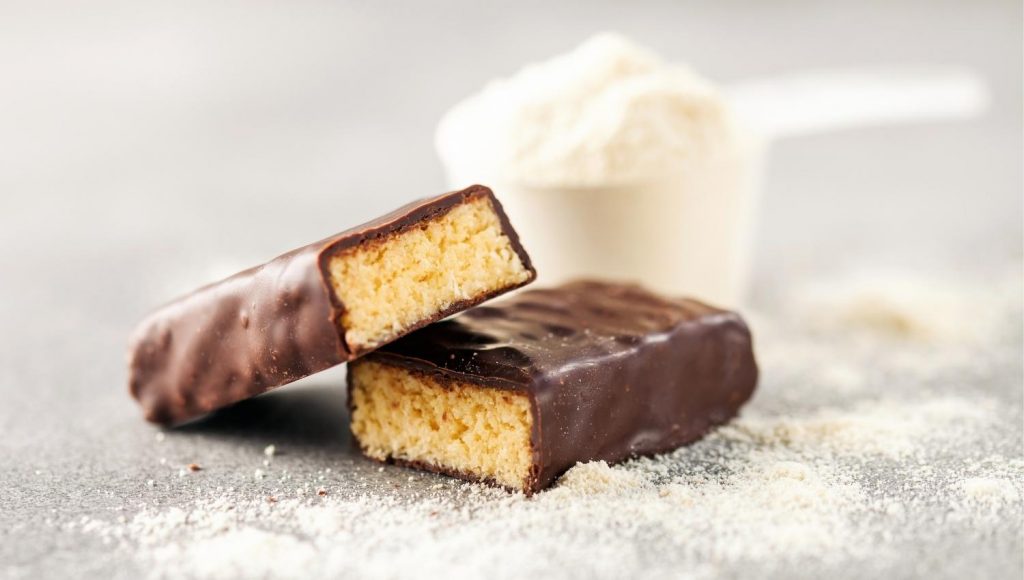
Nearly everyone has eaten a protein bar at one point in their lives. You know how this works and the benefits of protein bars are convenience and feeling full.
The difference with collagen bars is that their protein source is provided by collagen protein rather than dairy proteins (whey, casein), plant-based proteins (soy, pea, brown rice), egg whites, or nuts and seeds.
With that said, there are plenty of awful tasting collagen protein bars available today. I’ve tried many and gagged on a few dry, chalky ones. CB Supplements currently focuses on multi collagen powders, but I’d recommend Bulletproof’s Vanilla Shortbread — it’s incredibly delicious.
Choose collagen bars if you:
- need quick satiation. Great for a hearty snack!
- looking for a few other ingredients (e.g. MCT Oil). I prefer this method over adding MCT oil to my coffee or occasional smoothie.
- want a little sweetness fix. Many collagen bars will add 5g or less of sugar to make them tastier.
6. Collagen Gummies
I mean, come on. Gummies? Who doesn’t love a gummy?
They look like candy. They don’t quite taste like candy. But, my heart flutters a little every time I hold one. Maybe it’s because I ate too many sour patch kids back in the day? Maybe.
Collagen gummies are beloved by kids (so we’ve heard), and remember, collagen has awesome benefits for kids too.
Other supplements (e.g. vitamins) rule the gummy market. But, from our research, a quality collagen gummy is a little harder to find and purchase. Until they’re more available, make your own — just Google “collagen gummy recipe” and you’ll find something easy to make at home.
Get a deeper dive on gummies with our Collagen Gummies vs Collagen Powder comparison guide.
Choose collagen gummies if you:
- have kids. Show me a child that doesn’t light up when they see a gummy.
- like candy. But, don’t want to eat candy. Though significantly less sweet, collagen gummies could satisfy that fix.
- are OK with less collagen per serving. It takes 10 gummies to equal 1 scoop of collagen powder. Get your floss ready!
Collagen Gimmicks
If you’re looking for the best way to take collagen, stay away from the gimmicky marketing and cosmetic products. Your wallet will thank you.
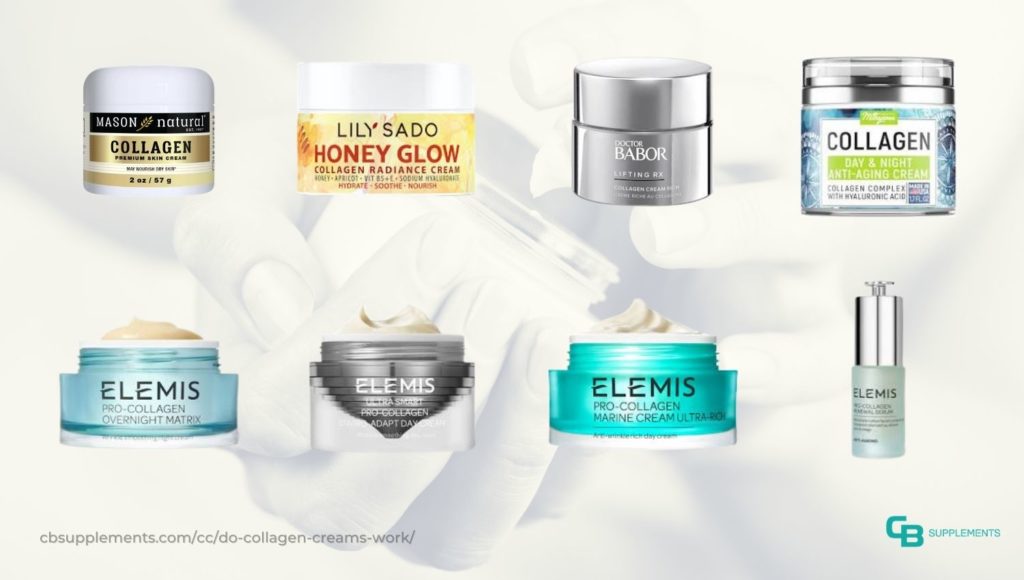
If you want to replenish your body’s collagen in the most effective way possible, avoid:
- Collagen Powder w/ Vitamin C added. The body needs Vitamin C (and many other enzymes) to manufacture collagen. However, only 1 in 20 of us is Vitamin C deficient. A collagen powder with Vitamin C doesn’t improve collagen powder absorption. It instead could backfire and lead to harmful oxidation.
- Topical Collagen Creams. Since collagen needs to be taken orally and ingested (as we explored above), collagen creams do not work. They are hype. “Your skin’s primary job is to keep stuff out — you can’t rub collagen on your skin to increase your collagen”, explains Dr. Matthew Knight, M.D.
- Collagen injections. These are gimmicky if you believe that injected collagen does more than temporarily improve your skin or plump your lips. Injections don’t stimulate the production of collagen, therefore we wouldn’t consider them as a way to take collagen to get all of collagen’s life-giving benefits.
What is the Best Way to take Collagen?
As a quick review, you have two ways to take collagen:
- Whole Foods
- Collagen Supplements (up to 6 forms to choose from)
Our recommendation here hasn’t waivered — we always recommend getting your nutrition from food FIRST. Then supplement. Therefore, our answer to the best way to take collagen is through whole foods.
I would much rather someone drink bone broth every day than take our supplement.Charlie, Founder
Drink 8-12 oz of bone broth a day, eat tripe, devour chicken with the skin, etc. — if you want to boost your collagen, you must eat it. This is the best way to take collagen. Real food, without going through any processing, will always outweigh any supplement.
What form of collagen supplement is best for you?
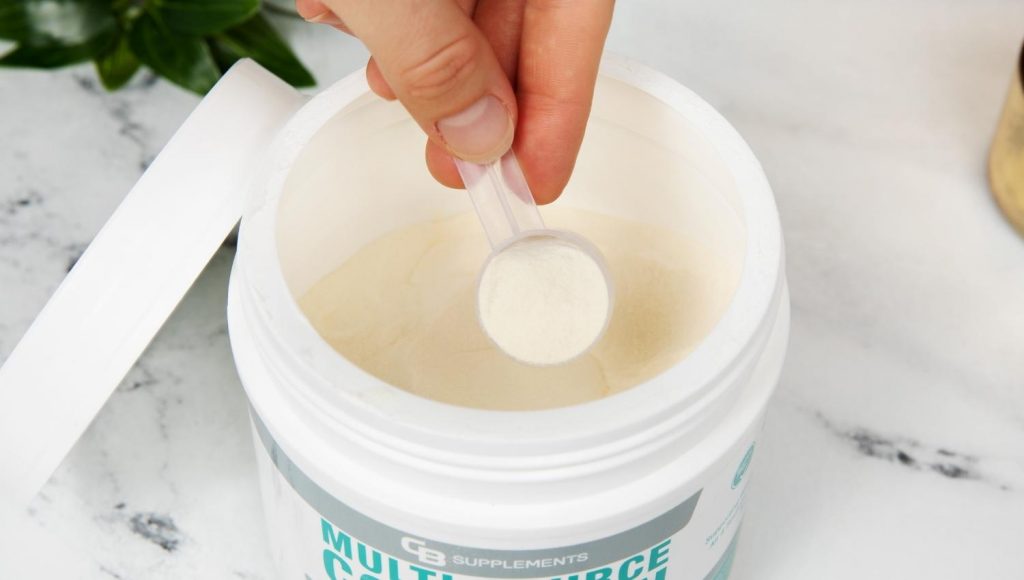
If you choose to supplement, there’s technically no best way to take a collagen supplement. All forms listed above are terrific for supplementing your collagen.
This is about personal preference, people. The real question is, what collagen form is best for you?
If you’re aiming for 10-40 grams of collagen protein daily, keep things interesting by using a few different forms during the day. Obviously, we love collagen powder, here’s how to use collagen powder (16+ ideas!)
As more collagen supplements hit the market, you’ll have more options. But, maybe that’s not a good thing? We hope this has been helpful and you’re motivated to experiment with all the various forms of collagen.
